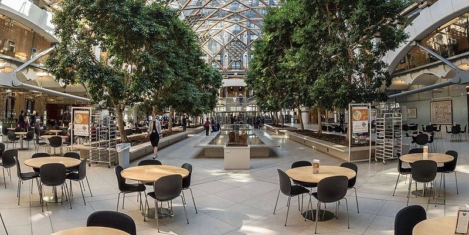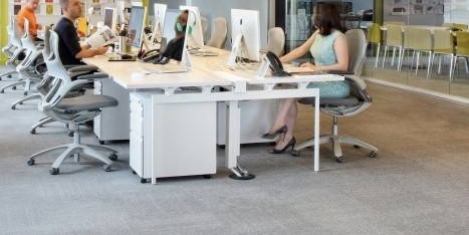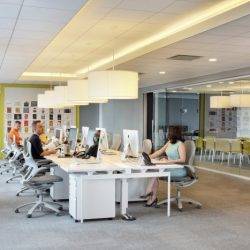May 11, 2017
Wellbeing strategies more commonplace in UK, but employees aren’t benefitting 0
 A new study from consultancy Barnett Waddingham based on the firm’s UK Workplace Wellbeing Index claims that despite wellbeing strategies becoming more common practice in UK companies, the benefits are not yet reaching employees. According to the report, nearly three quarters of firms who responded to the study claim they already have introduced a strategy or are in the process of implementing one. However, 60 percent of participating organisations report their employee wellbeing as between moderate and very low. According to the study organisations need to ask themselves if they are providing the benefits and interventions that are most effective for their employees. The research shows that the top five widely offered benefits (rated by effectiveness) are flexible working or home working, carer support, health assessments, line manager training and cancer screening. However, those most commonly utilised are flexible working, line manager training, carer support, home working and occupational health.
A new study from consultancy Barnett Waddingham based on the firm’s UK Workplace Wellbeing Index claims that despite wellbeing strategies becoming more common practice in UK companies, the benefits are not yet reaching employees. According to the report, nearly three quarters of firms who responded to the study claim they already have introduced a strategy or are in the process of implementing one. However, 60 percent of participating organisations report their employee wellbeing as between moderate and very low. According to the study organisations need to ask themselves if they are providing the benefits and interventions that are most effective for their employees. The research shows that the top five widely offered benefits (rated by effectiveness) are flexible working or home working, carer support, health assessments, line manager training and cancer screening. However, those most commonly utilised are flexible working, line manager training, carer support, home working and occupational health.











 New guidance to help facilities managers manage the transition to agile working within their organisation has just been published by the British Institute of Facilities Management (BIFM). The Agile Working Change Management Guidance Note is aimed at FMs working at a senior and/or operational level and covers the benefits of agile working and how to successfully plan and implement an integrated approach to deliver sustainable change in working behaviour. Agile working describes a range of work settings that allow people and organisations to make new choices about when, where and how they work. It is underpinned by mobile technology and applies to people working both in and away from the traditional office, such as at home, on the road or remotely in other locations. BIFM’s research and information manager Peter Brogan said: “As an Institute, we recognise the importance of the workplace agenda for FMs and this newly commissioned Guidance Note aims to address the current lack of knowledge around some of the emerging workplace practices.”
New guidance to help facilities managers manage the transition to agile working within their organisation has just been published by the British Institute of Facilities Management (BIFM). The Agile Working Change Management Guidance Note is aimed at FMs working at a senior and/or operational level and covers the benefits of agile working and how to successfully plan and implement an integrated approach to deliver sustainable change in working behaviour. Agile working describes a range of work settings that allow people and organisations to make new choices about when, where and how they work. It is underpinned by mobile technology and applies to people working both in and away from the traditional office, such as at home, on the road or remotely in other locations. BIFM’s research and information manager Peter Brogan said: “As an Institute, we recognise the importance of the workplace agenda for FMs and this newly commissioned Guidance Note aims to address the current lack of knowledge around some of the emerging workplace practices.”






















